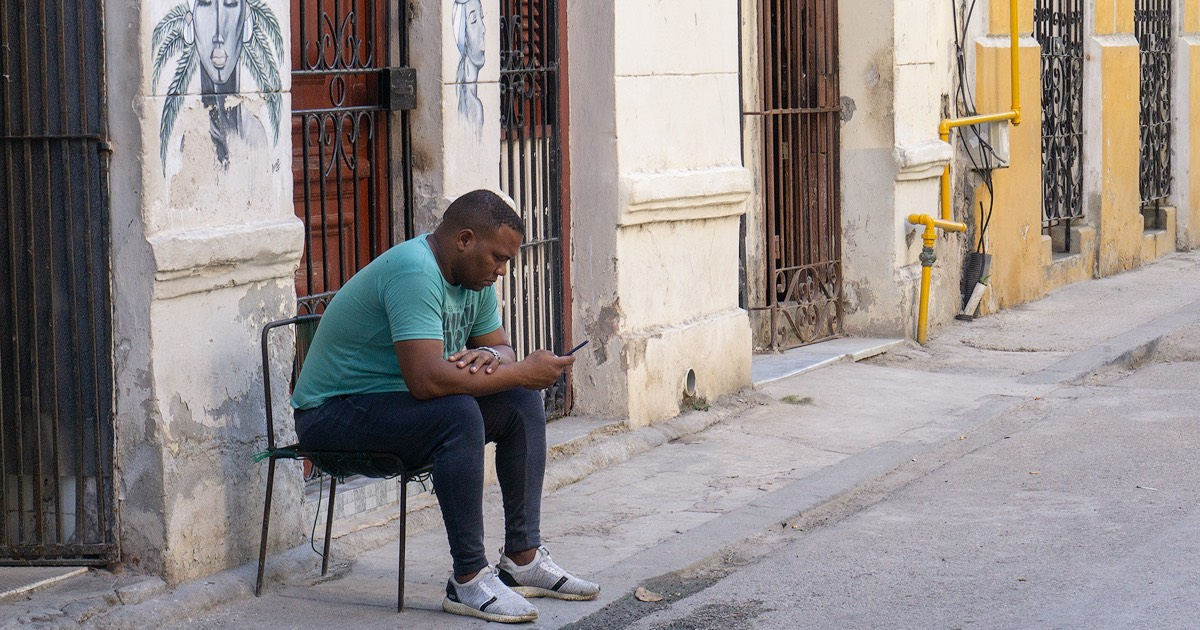A Cuban individual has publicly exposed a scam method circulating on social media, targeting unsuspecting users through fraudulent bank transactions. He quickly identified the scheme and decided to share his experience to warn others.
Reinaldo Suárez detailed the scam operation in the Facebook group "Bazar Santiago de Cuba." He described how scammers post ads on Facebook offering cash in exchange for bank transfers. Once a potential victim shows interest, they request their phone number, access their profile, copy the photo of a friend, and contact the person through WhatsApp, pretending to be that friend to build trust.
"I have managed social media for a secondhand clothing store, so I have experience identifying these kinds of traps. I spotted it immediately and took it as entertainment," said Suárez, who also shared screenshots of fraudulent posts, phone numbers, and accounts associated with the scammer.
The shared screenshots showed Suárez, using humor as a tactic to confirm the scam, asking nonsensical questions. Among them, he inquired about the scammer's supposed boyfriend and offered condolences for the death of their grandparents—situations the scammer could not respond to coherently, revealing their fraudulent intentions.
The whistleblower urged social media users to share the information and stay vigilant to avoid falling into such traps, emphasizing the importance of not providing personal information to strangers, especially during suspicious interactions.
Rising Scam Awareness
Despite this warning, the scam method seems to have become "popular" on social networks, with alerts issued on other occasions. Dangelkys Sánchez, a member of the Facebook group "Madres cubanas por un mundo mejor," cautioned about a new social media scam.
"Be careful with this individual; they are deceiving through social networks. They look for your friends on Facebook, use their photos, and then contact you through WhatsApp, pretending to be them, asking for a transfer (in this case, in MLC). Do not transfer anything unless it's in person to avoid being scammed," she emphasized.
In another case, Cuban actress Aileen Acosta publicly reported that unscrupulous individuals are using her image and name for an online scam that has already affected several people. Aileen took to her social networks to alert about a fake Facebook profile impersonating her and promoting a non-existent agency called CubaMex, which supposedly delivers food packages and rents cars.
Local Development Projects Also Targeted
Recently, a local development project in Ciego de Ávila, known as La Finquita, issued a public warning after discovering counterfeit ice cream being sold under their brand. According to the report, dishonest individuals buy lower-quality, cheaper ice cream, repackage it in La Finquita containers with fake labels, and primarily sell it through social media.
The team from La Finquita made the announcement on Facebook, stressing that they have no connection to these repackaged products.
Understanding Social Media Scams in Cuba
How do scammers gain trust on social media?
Scammers often gain trust by impersonating friends or family members, using photos and information from social media profiles to appear legitimate.
What should you do if you suspect a scam?
If you suspect a scam, do not provide any personal information or make transactions. Report the suspicious activity to the platform and warn others.
Why is it important not to share personal details online?
Sharing personal details online can make you vulnerable to identity theft and scams, as criminals can use this information to impersonate you or access your accounts.
